Why is my vagina dry?
Hot flashes and irregular periods are two well-known signs that menopause could be knocking on the door. But did you know that vaginal dryness and vaginal irritation are other common menopausal symptoms? Because as you age, so does your vagina. Normally, estrogen helps lubricate the vagina and keep it healthy, but when you hit menopause, the production of the female sex hormone drops significantly. As a result, the tissues of the vagina become thinner, dryer and more prone to inflammation, a condition that is called vaginal atrophy. But menopause isn’t the only reason why your estrogen levels may drop. Childbirth, breastfeeding, certain medical conditions and taking oral contraception can also decrease estrogen and in turn lead to vaginal dryness. In some cases, a dry vagina is not related to estrogen at all, but to excessive hygiene practices. Regardless of what’s causing your vagina to feel like the Sahara Desert, there are safe and effective treatments that can help.
Vaginal dryness symptoms
Vaginal dryness can cause an overgrowth of harmful bacteria in the vagina, which in turn can lead to abnormal discharge. You may also feel itchy in and around the vagina, have frequent urinary tract infections and feel pain during sex. In some cases, vaginal dryness can cause painful symptoms like vaginal burning, vaginal irritation and vaginal soreness.
Vaginal dryness treatment
Although dryness is rarely a sign of a serious medical condition, it can cause some pretty unpleasant vaginal irritation and make you lose interest in sex. But there’s no reason to let a dry vagina ruin your quality of life – try a vaginal moisturizer like Multi-Gyn LiquiGel to supplement the natural moisture in your vagina. This is a natural based product for women of all ages – apply it as needed to relieve symptoms like vaginal burning and vaginal irritation. Multi-Gyn LiquiGel is an over-the-counter product that you can buy online and at most pharmacies. If you have severe dryness symptoms and are not getting the relief you need from natural products, your doctor may recommend a low-dose vaginal estrogen treatment. These come in many different shapes and forms, for example as a cream, suppositories or a soft, flexible ring that is inserted in the upper part of the vagina. If you have other menopause symptoms as well as dryness, your doctor may recommend a stronger estrogen treatment. Just be sure to tell your doctor if you have a history of breast cancer, since estrogen treatments can increase the risk of it coming back.
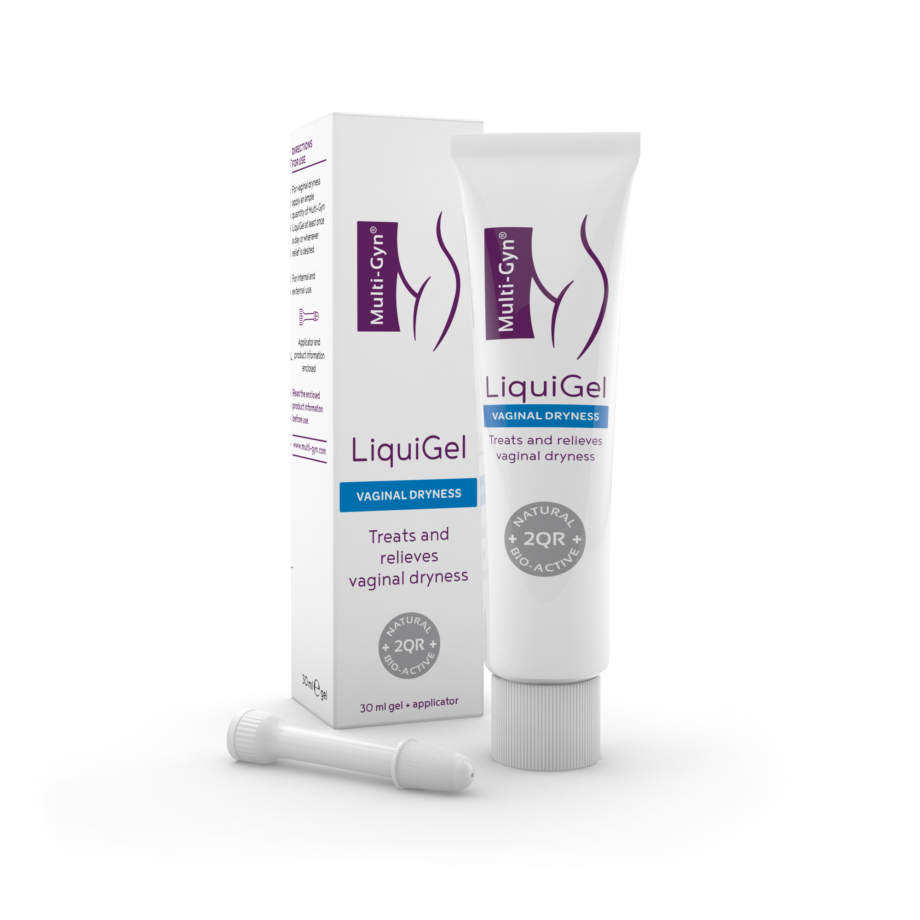
Multi-Gyn LiquiGel
Treats and relieves vaginal dryness
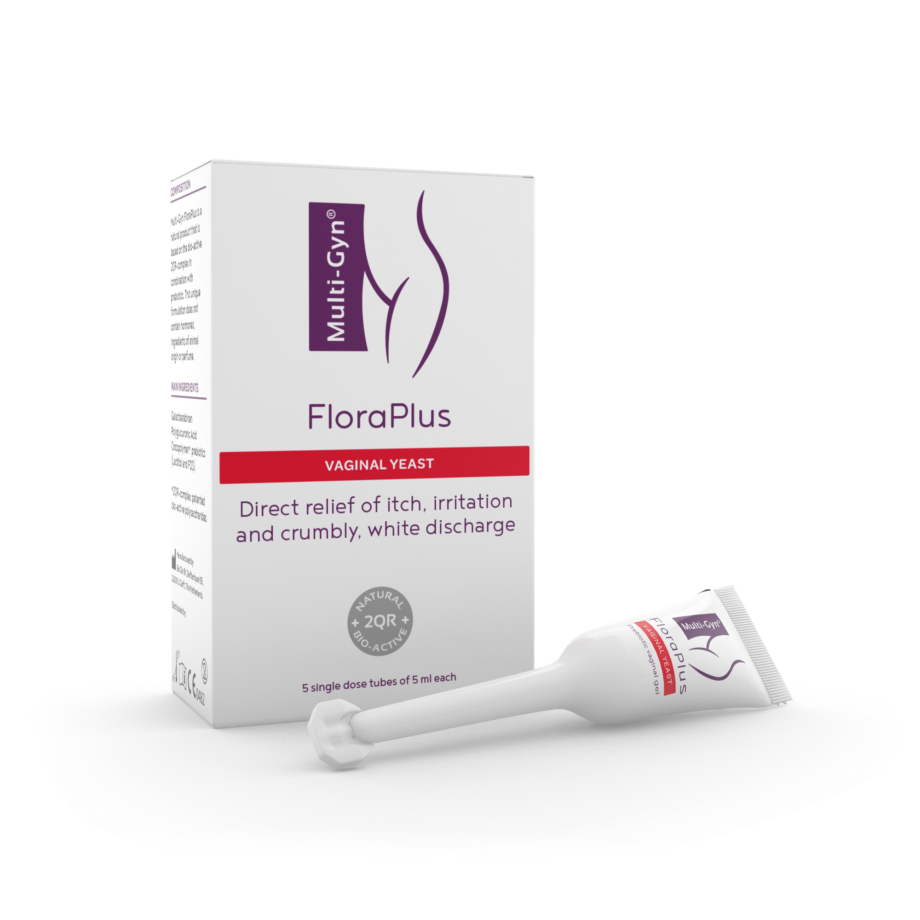
Multi-Gyn FloraPlus
Treats vaginal yeast symptoms
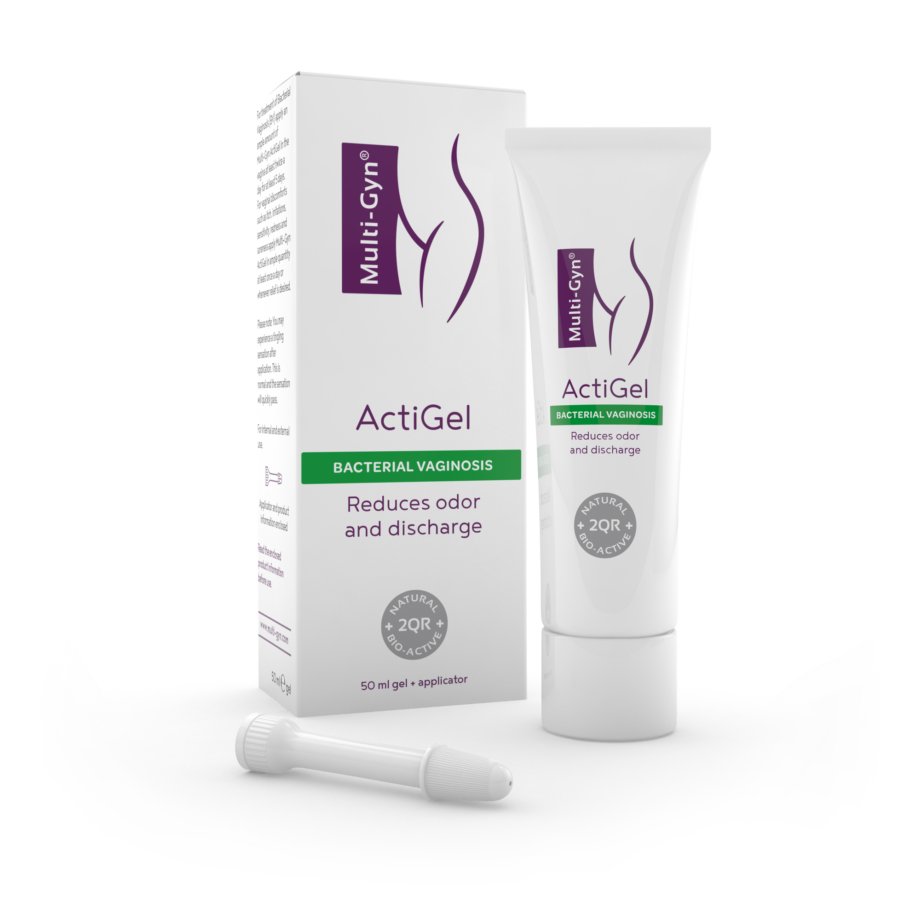
Multi-Gyn ActiGel
Treats bacterial vaginosis (BV)
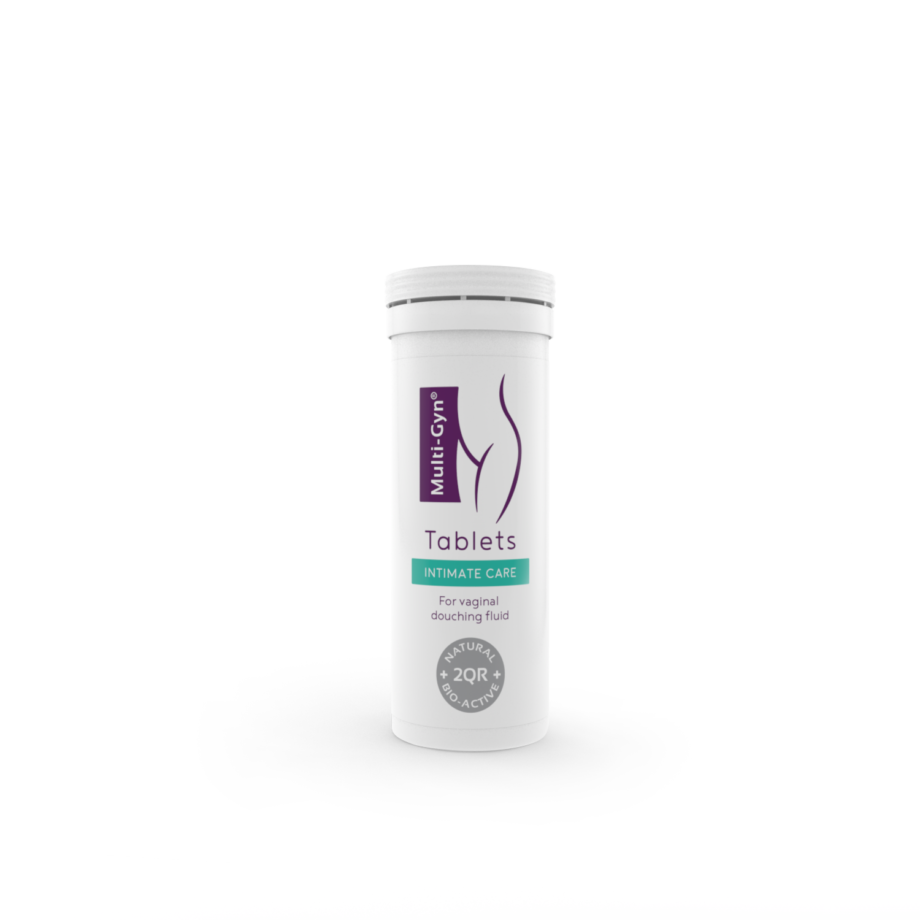
Multi-Gyn Tablets
For vaginal douching fluid
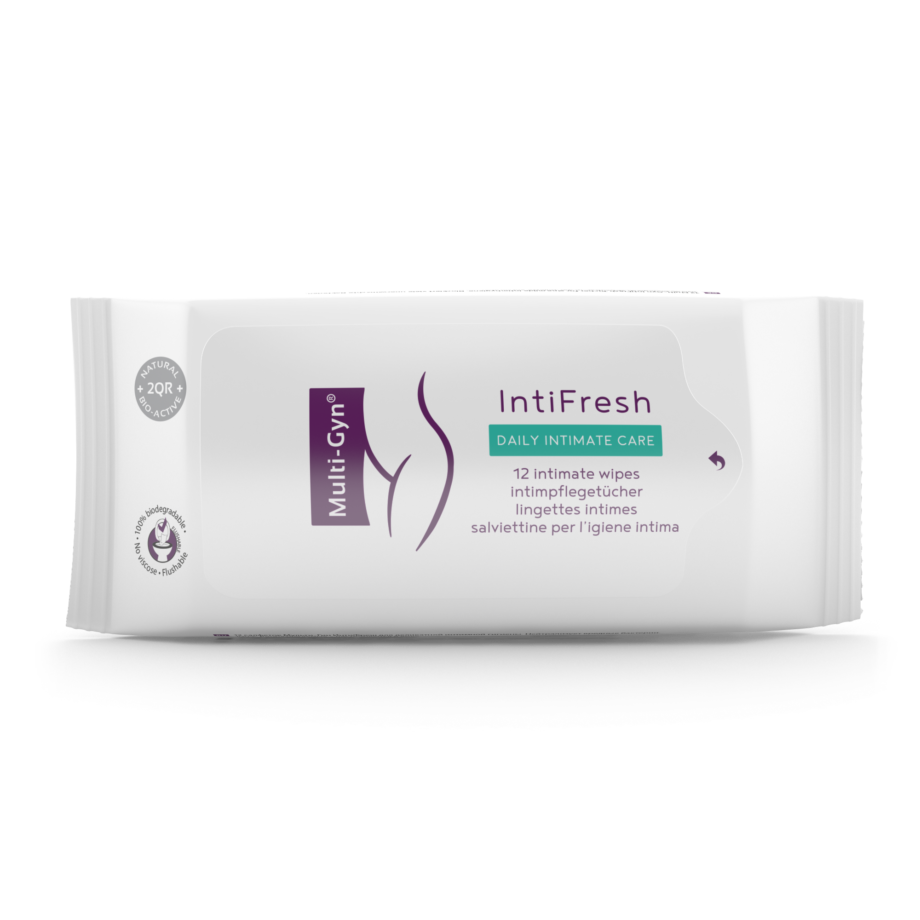
Multi-Gyn IntiFresh
Wipes for a mild intimate hygiene

Multi-Gyn IntiSkin
Soothes irritations of the intimate skin area
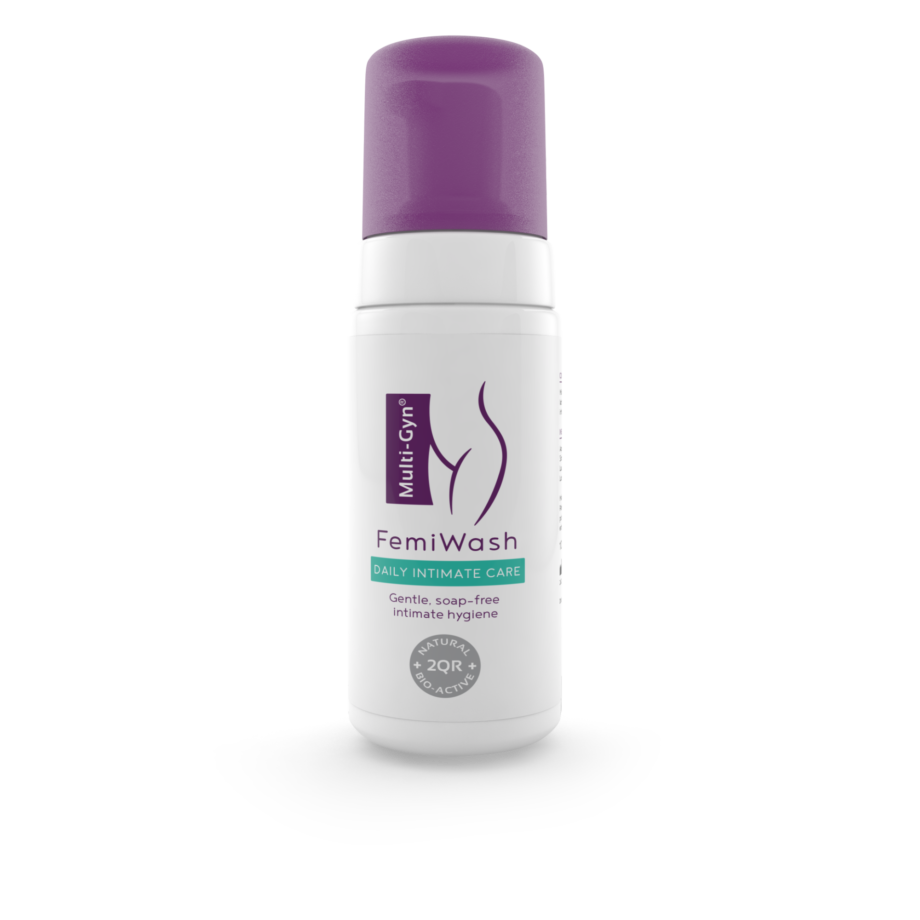
Multi-Gyn FemiWash
Gentle, soap-free intimate hygiene
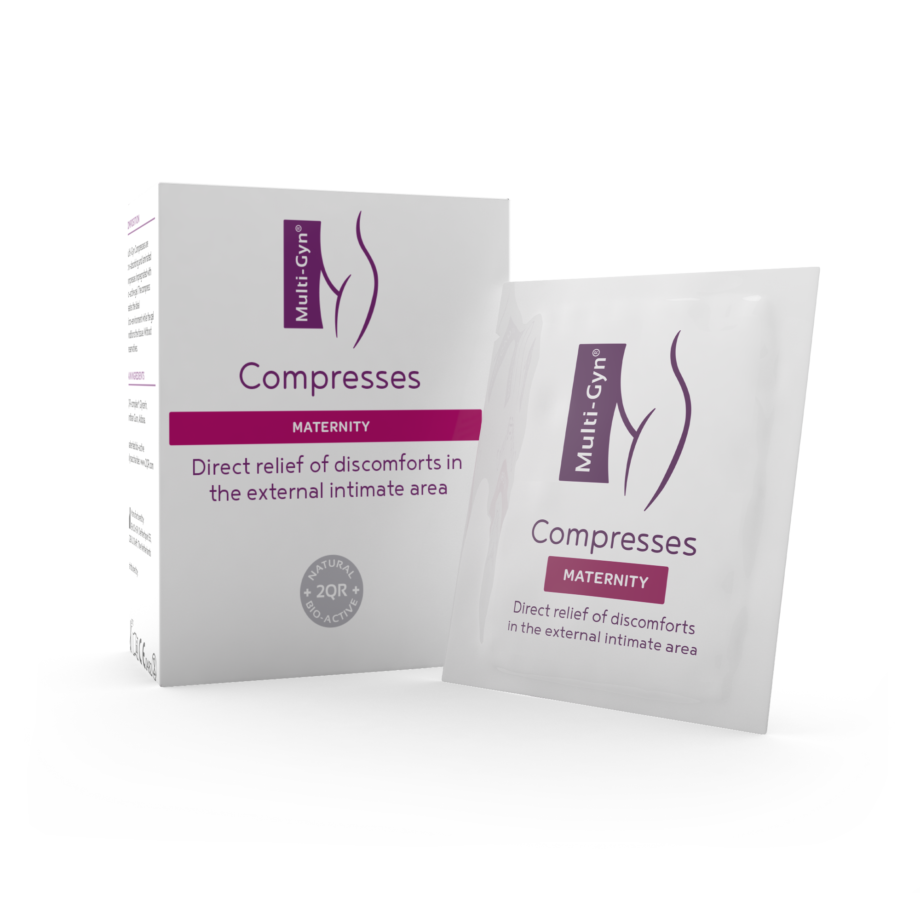
Multi-Gyn Compresses
Maternity. Soothing effect on the external intimate area
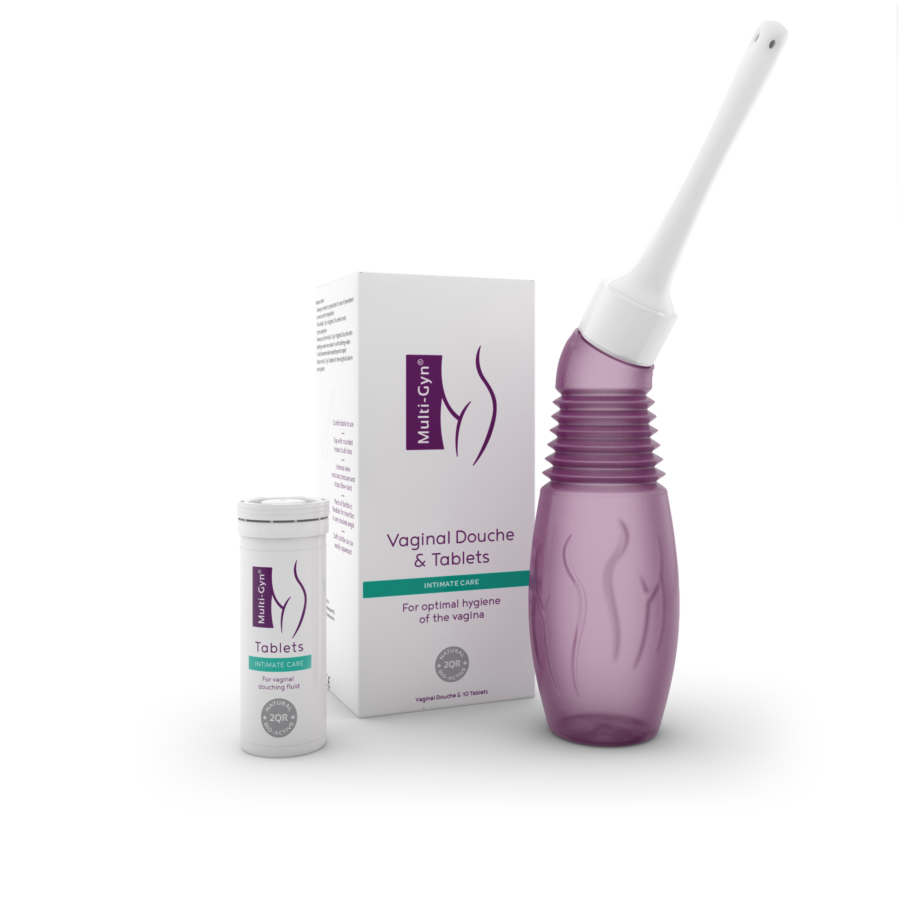
Multi-Gyn Douche & Tablets
For optimal hygiene of the vagina
Vaginal dryness causes
Post-menopausal women are most likely to suffer from vaginal dryness, but the symptom can affect women of any age. Aside from menopause, a dry vagina can be caused by:
- Breastfeeding and childbirth
- Contraceptive pills or antidepressants
- Surgical removal of the ovaries or womb
- Some cancer treatments
- Certain allergy and cold medications
- Certain immune disorders, like Sjogren syndrome
- Soap, laundry detergent, lotion, perfumed tampons or douches
Some lifestyle factors – stress, smoking and excessive exercise, for example – can contribute to vaginal dryness. You may also have a higher risk if you haven’t given birth vaginally or are not sexually active.

